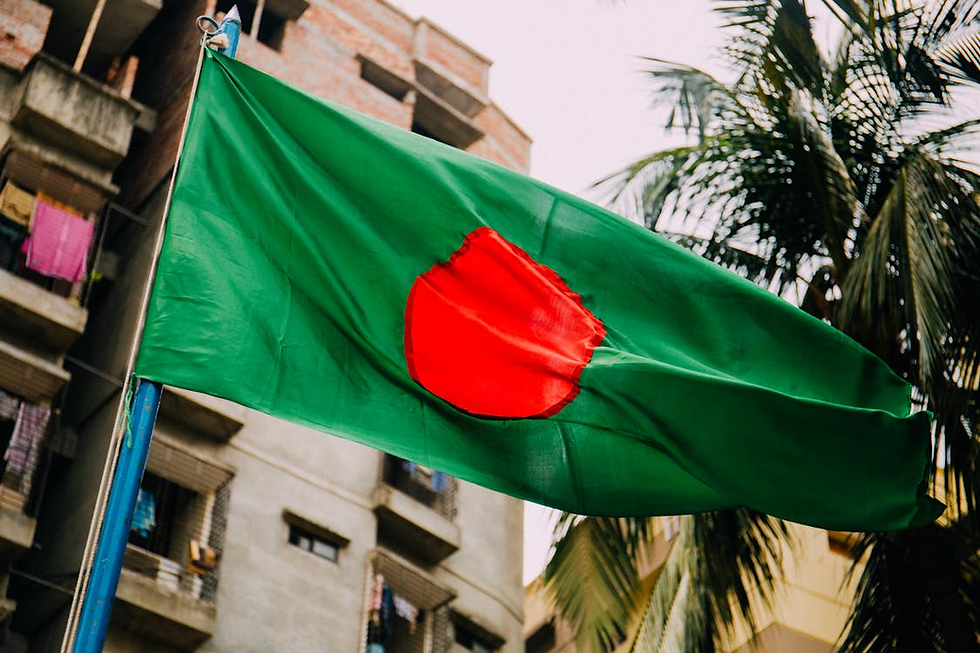Iranian Alireza Fazeli Monfared Allegedly Killed by Own Family for LGBT Identity
- Hannah McGaw

- May 14, 2021
- 3 min read
Updated: Dec 23, 2024
The family of Alireza Fazeli Monfared, who identified as a non-binary gay person, reportedly murdered him after reading of his sexual orientation on his military exemption card. Ali Fazeli Monfared, who was known as Alireza by friends and family, had applied for an exemption from compulsory military service so that he could leave the country and move to Turkey.
Monfared was killed by members of his own family in a so-called “honour killing”, according to activists. The Iranian LGBTQ network 6rang said in a statement that Monfared was killed near his home city of Ahvaz in the province of Khuzestan (in western Iran), on the 4th May. Some media channels stated that he had been beheaded, though according to The New Arab, this has not been confirmed.

In Iran, same-sex relations are illegal, and are ultimately punishable by death or life imprisonment. According to Human Rights Watch, the punishments for homosexual conduct range from thirty-one to one hundred lashes to death. Though same-sex relations are criminalised in Iran, part of the military exemption law (Paragraph 5, Article 7) allows LGBTQ individuals to receive a medical exemption from service for their identity. The law states: “a person can be freed from his military service duties, if he is ‘mentally ill’ (homosexual)”. “The card, and the exemption for homosexuality as a disease, put Fazeli Monfared in danger”, Shadi Amin, Executive Director of 6rang, told NBC News.
Monfared received the exemption card by mail from the Islamic Revolutionary Guard Corps after disclosing his homosexuality. One of his male relatives reportedly found it, thus discovering he was gay, according to 6rang and NBC News. Audio recordings reviewed by BBC Persian show that Monfared had received threats from his family, and he had subsequently sought to migrate to Turkey, hoping to then seek refuge in other European countries.
6rang has previously explained how “Iran's degrading military exemption cards allow government agencies and employers to identify sexual orientation ‘with only one glance’ at a card.” On May 4th, after finding the exemption card, Monfared's half-brother and two of their cousins lured him into a car, according to IranWire, before taking Ali Fazeli to Borumi, a rural village near Ahvaz, where they killed him.
Though 6rang first reported that police had arrested three men in relation to Fazeli Monfared’s death, the organisation has since said that is no longer accurate and claim that no arrests have been made. Other organisations claim that three people have been arrested in relation to the murder, after the body was discovered several days later.
IranWire reports that the alleged killers called Fazeli Monfared’s mother and told her that they had “finished him off”. and that his body could be found under some palm trees.
Tara Sepehri Far, a researcher who investigates human rights abuses in Iran and Kuwait for The Human Rights Watch, told NBC News that “There are no statistics or records of the number of anti-LGBTQ ‘honor killings’ - which are perpetrated by relatives who feel the LGBTQ person has brought ‘dishonour’ to the family - that happen in Iran or other countries that criminalize homosexuality.” However, according to a survey conducted by 6rang in 2020, nearly 63% of Iranian LGBTQ people have experienced violence at the hands of their own family.
The victim’s partner, Aghil Abyat, who planned to meet Monfared in Turkey, has since led the tributes to Alireza. The Sun reports that he said: “Nothing is more difficult than to expect to see somebody you love in a few days, and suddenly you hear he is dead. Nothing is more difficult than to never be able to see him, or hear his voice, forever.”

_edited.png)



Comments